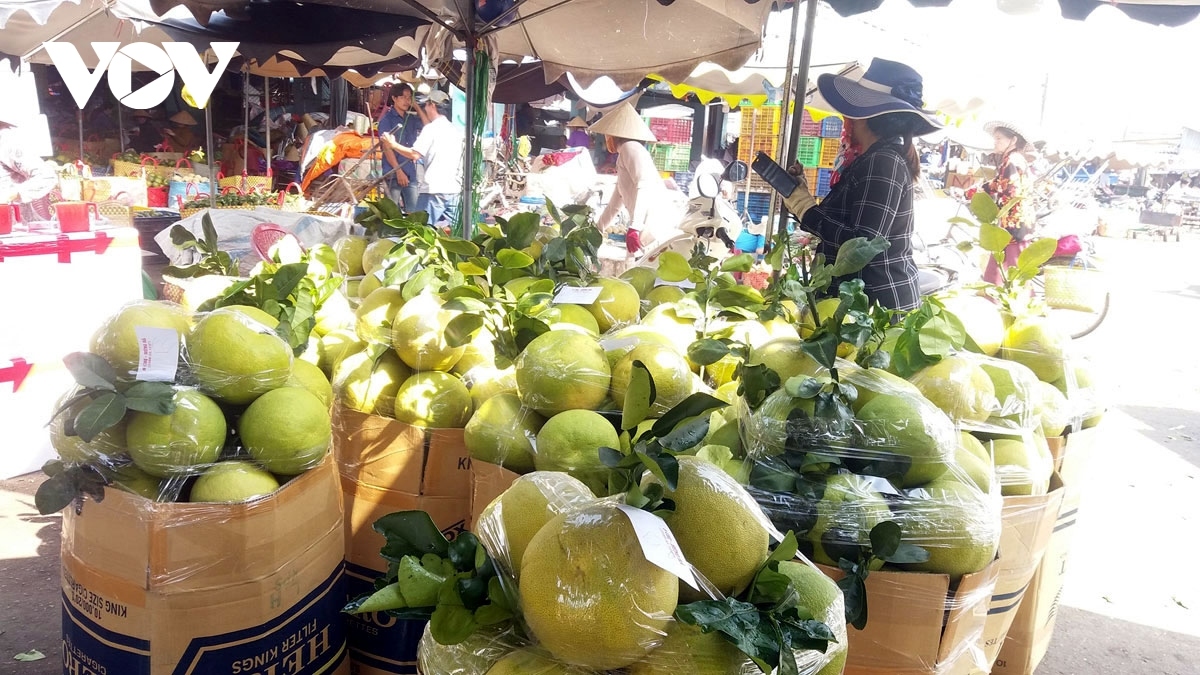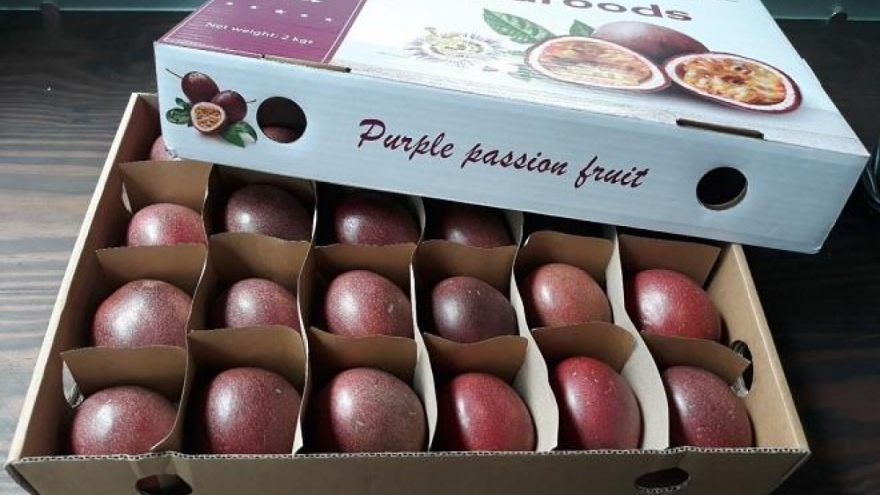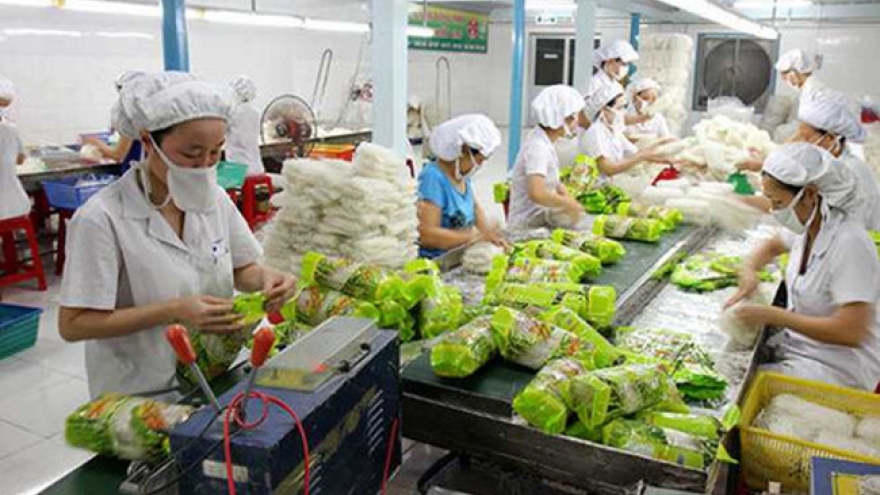Positive outlook ahead for local fruit exports to China
VOV.VN - It is anticipated that Vietnam's fruit products will enjoy greater opportunities in relation to export and import turnover as both Vietnam and China have successfully brought the novel coronavirus (COVID-19) pandemic under control.
According to latest statistics compiled by the General Department of Vietnam Customs, the nation's total export turnover to the Chinese market during the first eight months of the year reached US$27.35 billion, including US$1.31 billion from fruit and vegetable exports, representing an annual drop of 25.25%.
Growing price of fruit amidst low purchasing power
The Ministry of Industry and Trade (MoIT) attributes the decline in purchasing power to the impact of the COVID-19 pandemic. In addition, China has also imposed a string of measures on traceability, food hygiene, and safety in an effort to bring Vietnamese exports under stricter control.
According to the General Secretary of the Shanghai Fruit Association, despite domestic products being abundant, imported fruits are still the most popular among consumers in the Chinese market, especially those that appear beautiful and are accompanied by a delicious taste. Despite this, the opening months of the year witnessed fruits export to China fall as a result of the raging COVID-19 pandemic.
The average price of imported mangosteen, dragon fruit, cherries, citrus, coconuts, pineapples, and durian all witnessed an on-year rise, but due to low purchasing power, importers faced difficulties in transporting these items, leading to prolonged periods and higher logistics costs.
At present, only nine fresh Vietnamese fruits are permitted to be exported through official channels to the northern neighbour, including dragon fruit, mangoes, watermelons, lychees, longans, bananas, jackfruit, rambutans, and mangosteen.
According to the MoIT, competent agencies have requested that the Chinese side speed up the market opening process for other Vietnamese fruits, such as durian, grapefruit, passion fruit, custard apples, avocados, and coconuts.
Most notably, the Chinese market has become much more fastidious than before, largely because it will not grant import permission to agricultural products and fruits that don’t have clear origins. This has therefore caused plenty of difficulties for the export of local fruit products.
Experts believe that, due to huge import demand for fruit products coming from wholesale markets and wholesale and retail distribution channels in Shanghai, coupled with the popularity of a variety of Vietnamese fruits, China represents a highly lucrative market which local businesses can target moving forward.
With regard to the nation’s fruit potential, Dang Phuc Nguyen, general secretary of the Vietnam Fruit and Vegetable Association, emphasises that horticulture and fruit cultivation is set to represent one of the most promising fields of the local economy. According to experts, the country is able to boast great potential in terms of becoming a major fruit exporter, not only to China, but also to the world.
Potential coupled with great export opportunities
According to Vu Ba Phu, director of the Vietnam Trade Promotion Agency under the MoIT, through the large import demand of fruit products from wholesale markets, wholesale, and retail distribution channels in Shanghai, the Trade Promotion Department continues to connect local fruit firms with potential buyers. Indeed, these connections are largely carried out through the process of online transactions.
As a means of facilitating business co-operation between both Vietnamese and Chinese enterprises, the Trade Promotion Department has established a trade promotion office in Hangzhou, the capital of Zhejiang province and located close to Shanghai.
The office is set to support enterprises from Shanghai to seek opportunities for long-term business co-operation and investment with Vietnamese fruit suppliers, in addition to other products.
"The Vietnam Trade Promotion Agency always supports and performs its role as a promotion agency well, whilst being a bridge between Vietnamese businesses and Shanghai to enhance exchanges, boost business connectivity, and invest effectively," says Phu.
Expressing an appreciation of the advantages of Vietnamese goods and the nation’s fruits in the Shanghai market, Ninh Thanh Cong, Vietnamese Consulate General in Shanghai, states that both countries have many advantages to exploit each side’s respective strengths and commercial potential, especially in the fruit sector.
The General Secretary of the Shanghai Fruit Association also underlines the need for firms to supply high-quality products at competitive prices in an effort to gain a greater market share, while also adding that improving production quality and efficiency will serve to create a turning point in business activities.



